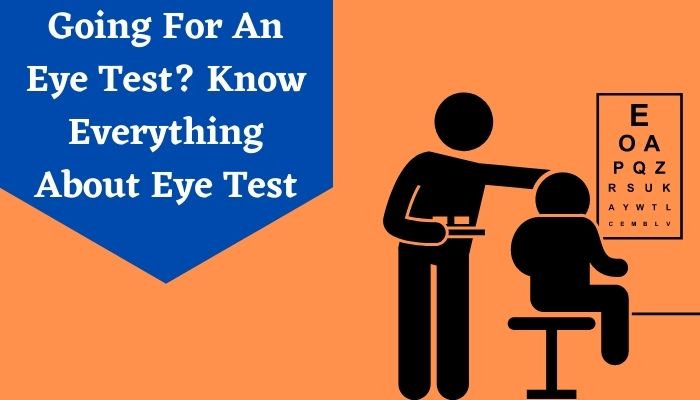An eye exam comes up with a group of tests that usually assess your vision and check for various eye diseases. By using various instruments like slit-lamp lights, your doctor will check your eyes through a bunch of lenses. Each eye test during an eye examination appraises a different feature of your vision or eye health.

The average cost of the vision test is Rs. 1500-Rs.3000. The price varies depending on your city and location.
Test Summary
| Is Also known as | An Eye Exam, Eye testing |
| Test Type | Eyes |
| Eye test includes | Checking your vision and various eye diseases |
| Preparation | No special preparation is required |
| Reporting | Within 24 hrs |
| Test price | The cost of eyesight test is between Rs. 1500 and Rs. 3000 but it may vary from state to state and lab to lab |
| Also included in | Health Insurance Plans |
| Related tests | Fundus photos, Optical coherence tomography, Fluorescein angiography, Topography |
Why Should You Need an Eye Exam?
The prime objective of an eye exam is to determine various eye diseases at their earliest stage. Regular eye exams will also help you correct or adapt to vision changes.- If you are suffering from eye pain, injury, infection or you experience sudden floaters and flashes or sensitivity to light, you must visit an ophthalmologist
- If you have contact lenses, then you should visit an eye specialist every year
- If you are suffering from diabetes or have a family history of eye disease, talk to an ophthalmologist on a regular interval basis.
- If you are taking medications that are affecting your eyes, then you must visit an ophthalmologist
Children 3 Years and Younger
If your child is between 3-5 years, take him to an ophthalmologist for healthy eye development. The ophthalmologist will also check for some common childhood eye problems like lazy eye, cross-eyes, or misaligned eyes.School-Age Children and Adolescents
Check the vision of your child, before enrolling him in a kindergarten school.Adults
If you are a healthy adult with no underlying diseases, then you can go for an eye checkup at the age of 40 (according to the American Academy of Ophthalmology). Because vision changes and eye diseases will start developing at this age. If you are above 60 years, then you must check your eyes twice a year.How To Prepare Yourself for an Eye Checkup?
There are three types of eye specialists. Depending on your problem, you can choose the best one.1. Ophthalmologists
They are doctors who will perform a complete eye care checkup, including eye exams, prescribing corrective lenses, diagnosing and treating delicate eye diseases, and performing intricate eye surgeries.2. Optometrists
Their jobs are similar to the jobs of ophthalmologists. But if you have a severe or complex eye problem that needs surgery, then your optometrist may refer you to an ophthalmologist.3. Opticians
They offer eyeglasses, contact lenses including assembling, fitting, and selling. They don’t conduct any eye health evaluations.What are the precautions you need to take for an eye exam?
Carry your sunglasses to wear after your eye exam. If the doctor needs to dilate your eyes during your exam, then the light may cause some discomfort or blurred vision. So, take someone when going for an eye exam.Before the exam
If you are visiting for the first time an ophthalmologist, the doctor will ask some general questions regarding your health to understand the risk of developing eye diseases and vision problems. Questions can be- How long are you having eye problems now?
- Did you have eye problems in the past?
- Do you wear glasses or contacts?
- What is the status of your health?
- What medications are you taking at present?
- Do you have allergies to medications, food or other substances?
- Have you done any eye surgery before?
- Do you or any of your family members have diabetes, high blood pressure, heart disease or any other health problems?
During the exam procedure
- The doctor will measure the visual acuity to see whether you need glasses or contact lenses to improve your vision
- The doctor will measure your eye pressure. Your doctor may examine the inside of your eye or he/she may need to dilate your eyes with some eye drops
- After dilution, your doctor will evaluate the health of your eyes. By using several lights or imaging to assess the front of the eye and the inside of each eye.
- Sometimes, the doctor will perform other tests to check all parts of your eyes
After the Exam
Once the test is done, the doctor will discuss the results including an evaluation of your vision, your risk of getting eye diseases, and preventive measures.
